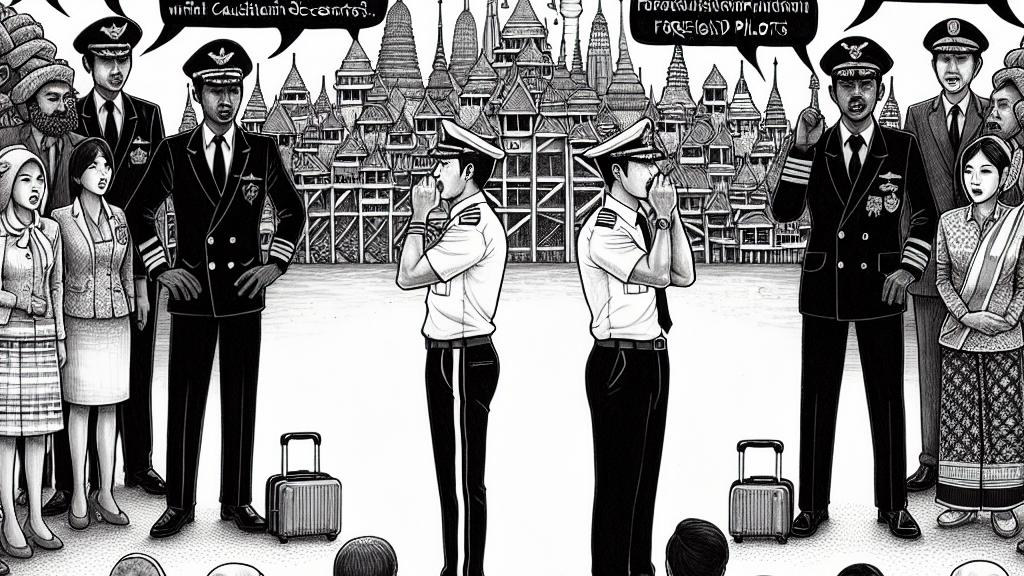Controversy Surrounding Foreign Pilots in Thailand's Aviation Industry
Overview
- Proposed rule change to permit foreign pilots ignites heated debate in Thailand's aviation sector.
- Concerns over job security arise from the Thai Pilots Association amidst reported pilot shortages.
- Aviation safety and international compliance issues add complexity to the controversial proposal.

Background on the Proposal
In the dynamic and evolving landscape of Thailand's aviation industry, a bold proposal has emerged that could potentially alter the skies. The request to allow foreign pilots to operate on domestic routes has sparked a fierce debate, stirring passions and unease among aviation stakeholders. Thai Vietjet, a key player in the market, has put forth this request, citing an urgent need to mitigate aircraft shortages as demand for travel surges in the post-pandemic rush. However, this seemingly pragmatic proposal is met with fierce resistance from the Thai Pilots Association. They argue that the current restrictions protect the jobs of qualified Thai pilots, ensuring that the nation's aviation resources are utilized effectively. In a country where aviation safety has been critically scrutinized in the past, allowing foreign pilots could pose significant risks, making the stakes particularly high in this unfolding drama.
Arguments Against the Rule Change
Opposition voices within the pilot community articulate their concerns clearly. They emphasize that the livelihoods of approximately 1,736 Thai pilots, who were laid off during the pandemic, hang in the balance. Moreover, with over 2,000 newly graduated pilots entering a competitive job market, the fear of increased foreign competition looms large. The Thai Pilots Association warns that allowing a 'wet lease' agreement—where foreign pilots accompany leased aircraft—sets a dangerous precedent. If one airline is permitted to hire foreign pilots, others may swiftly follow suit, potentially destabilizing local job markets and leading to widespread unemployment. Furthermore, the association raises serious legal concerns, asserting that such arrangements could violate the Chicago Convention on International Civil Aviation. This violation could entail significant repercussions, including a potential 'red flag' designation that might hinder Thailand’s capacity to expand its aviation operations internationally. The implications are far-reaching, impacting not just individual careers, but the country's economic positioning on a global scale.
Balancing Needs and Regulations
In contrast, advocates for the proposed rule change argue that immediate operational needs must be addressed to sustain the aviation industry. As travel demand continues to rise during peak seasons, hiring foreign pilots temporarily could provide essential support. Proponents assert that this move will allow airlines to respond dynamically to the increased passenger load, ultimately benefiting travelers through expanded services. The Labour Ministry has indicated a willingness to consider case-specific requests, maintaining that any adjustments would be carefully regulated to avoid sweeping changes across the industry. Yet, even as this discussion continues, the challenge remains: how to effectively balance operational flexibility with job security for local pilots? As stakeholders navigate these complex waters, it is crucial that both the benefits of operational adjustments and the rights of local workers are safeguarded simultaneously. This ongoing dialogue touches upon the heart of Thailand’s aviation future, representing a pivotal moment that could shape the landscape for years to come.

Loading...